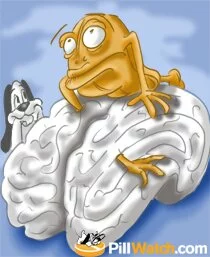
Bipolar depression has been treated for many years already, and in millions of cases available treatment methods show very positive and promising results. However, the majority of drugs, clinicians use to eliminate both types of bipolar depression symptoms, are not fully understood, poorly studied, and thus may be criticized.
Indeed, there are many controversial points about what benefits and risks the pills patients take today may carry in the nearest and distant future. Here are the key controversies of the use of antidepressants, which are commonly recommended to lessen the depressive phase of the disorder and are considered to be a frequent adjunct to the treatment with the mainstream medications - mood stabilizers.
- Switch to mania
Practically, all the manuals on bipolar depression treatments include a warning about the potential risk of switching to mania or hypomania if a patient is advised to add an antidepressant to his regimen. The matter is that trying to reduce depression these medications provoke significant and often sudden changes in the brain chemicals balance. As a result, people prone to switches (in the first place) and even those without the history of switching are under the greater risk of experiencing manic symptoms right after the depressive episode.
Multiple studies conducted by this time have not resolved this problem, as all of them can be criticized for flows, inconsistencies, and poor organization. In fact, many scholars are accused of juggling with numbers to justify the results of their findings. Actually, they try to shield what they think is true and cannot judge without bias.
- Rapid cycling
It is thought that antidepressants are mainly prescribed to the patients with severe manic-depressive disorder and to those with rapid cycling. However, many scientists, if not the majority, believe that these drugs may also be the triggers of this problem in many patients. Their points of view are supported mainly with clinical experience rather than research studies.
The latter fact is strongly criticized by the opponents of the statement, who note that randomized trials are necessary. Nonetheless, practice shows that discontinuing antidepressants usually improves the problem of rapid cycling.
- Kindling
This is a problem raised not so long time ago, thus, it lacks any reliable data and is supported mainly with subjective beliefs and personal clinical experience of practicing physicians.
Kindling, used with regard to bipolar depression, is a term, which denotes a state of a patient, whose bipolar disorder turns into a life-long condition with more and more frequent and severer symptoms. In addition, a patient becomes treatment-resistant, even if he observed improvements at the beginning of the therapy.
Some scholars suggest that antidepressants may be one of the triggers of such development of the disease. At the same time, other theories of this little-studied phenomenon also exist.
- Efficacy
The most generalized question about the use of antidepressants in bipolar depression concerns their effectiveness against this disorder, if any at all.

For years scholars assumed that antidepressants do work for bipolar depression. Lately, however, a new point of view has emerged. It denies altogether the usefulness and necessity of prescribing antidepressants to patients diagnosed with bipolar disorder. The followers of this theory state that surprisingly little evidence is available to support the commonly accepted vision of antidepressants effectiveness in bipolar patients.
Those who believe in this new theory would rather doctors tried mood stabilizers again even if they failed to improve the condition when applied for the first time.
For the time being, the battle of clinical studies and randomized trials of both opponents and adherents of antidepressants goes on with variable success.
| Tip for you : Sign-in with Your OpenID and post faster, easier and with easy access to all your past posts. | |
|
Your Nick: |
















